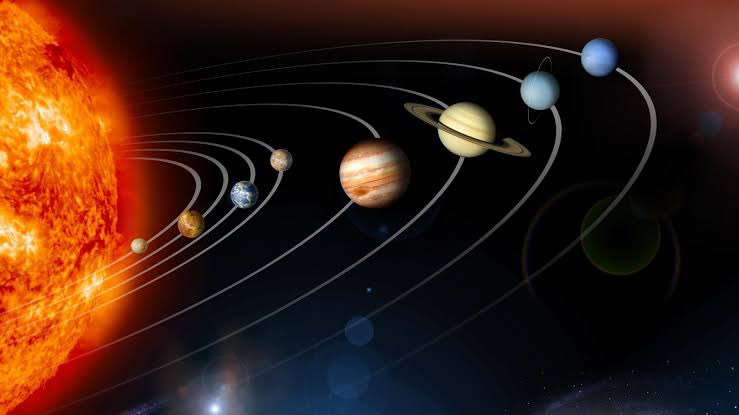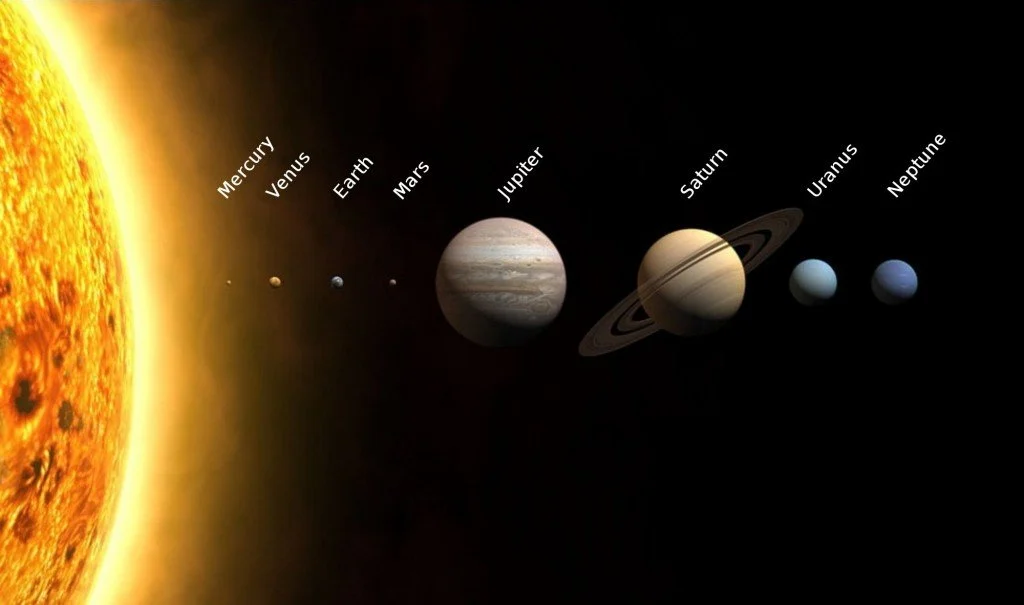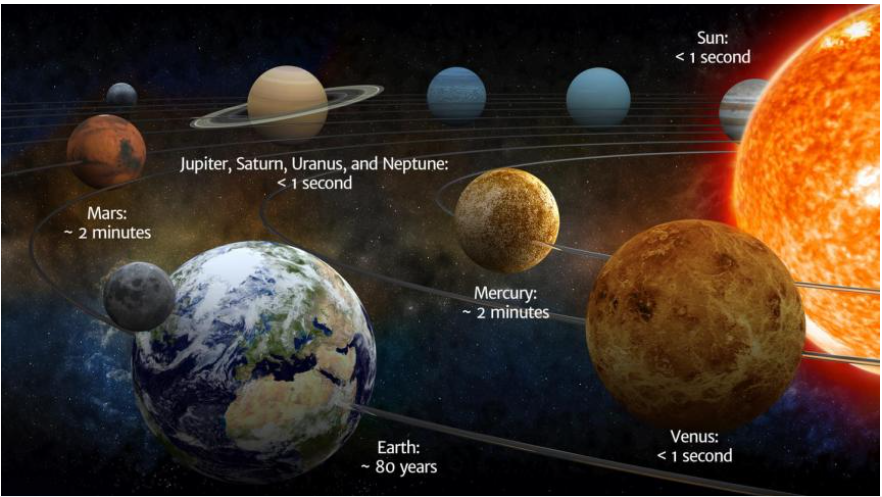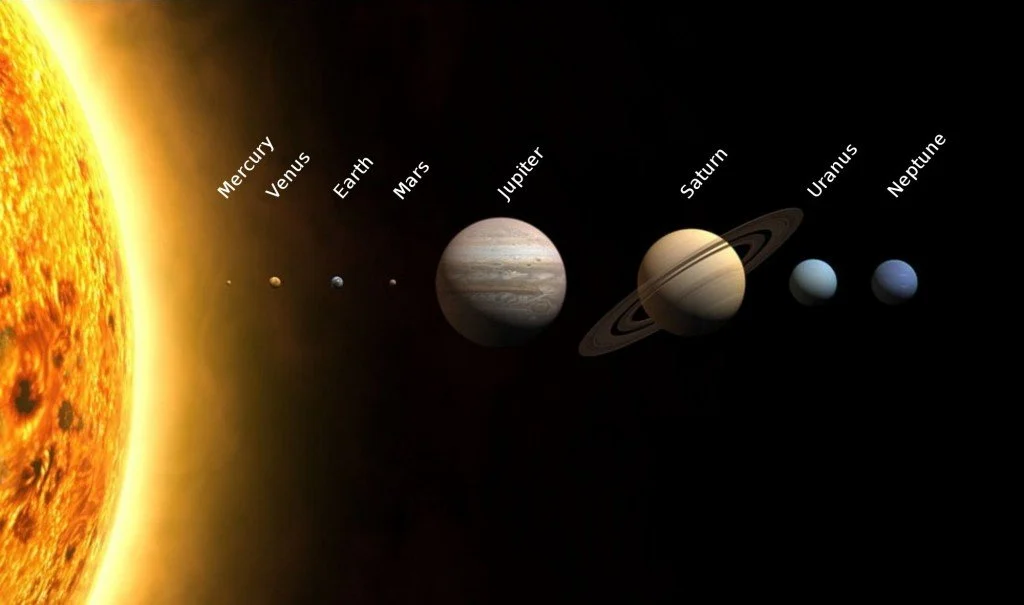Here's how long you could survive on each planet in our solar system.

It's science fiction for some, utopian dreams for others. Today we take you to the planets of the solar system and see how long you would survive without protection.
The basic needs of human survival are, as we know, to have food, water, and oxygen. It is moreover this last particularity which poses the most problem on the prospects of those who aspire to see man settle permanently on another planet of the solar system. But heat and pressure are other parameters to take into account in the hypothesis of survival on Mars.
Jennifer Glass, a professor in the School of Earth and Atmospheric Sciences & Biological Sciences at the Georgia Institute of Technology reports:
"The Earth's atmosphere today contains 20% oxygen. Without oxygen in the gas we breathe, humans would die of asphyxiation - lack of oxygen - in about seven minutes."
Newsweek magazine has thus listed the feelings of a man who would set foot on each planet of the solar system, answering the question of the lifespan and the circumstances of the death of a human if he set foot on every planet.
Mercury: life expectancy of 2 minutes... at best
Mercury is the closest planet to the Sun. It is therefore extremely hot. The temperatures observed are therefore:
+427 degrees Celsius at the hottest,
-179 degrees Celsius at the coldest.
Life expectancy:
Lacking an atmosphere, the sun's heat hits Mercury's ground directly. So if you are on the cold side, the life expectancy is 2 minutes. On the hot side, death would be almost instantaneous, by burning and evaporation of the water contained in the body.
Venus: an immediate death
NASA reports the particularity of Venus : a thick atmosphere which gives it a greenhouse effect. This greenhouse effect has the effect of raising the temperature of its surface to +464 degrees Celsius, like a pizza oven.

In addition, the pressure on the surface of the planet is strong, resulting from the thick atmosphere. Finally, clouds of sulfuric acid float on the surface of Venus. Thus, death would be immediate, and to believe Jennifer Glass, we are there on the planet most hostile to Man:
"While struggling to breathe, you would be scorched by extreme heat and acid within seconds. At least it would be a quick death, but it would be a horrible death ." (Newsweek)
Mars: the life expectancy of a few minutes
As we know, Mars is, after Earth, the planet which seems the most favorable to the survival of Man on its surface. It would still require some adjustments, because without protection, life expectancy would be short.
The temperatures observed are therefore:
+21 degrees Celsius at the hottest,
-142 degrees Celsius at the coldest (at the poles of Mars).
But the air is very, very rare on the surface: the very thin atmosphere is made up of 95% carbon dioxide. And if we can consider a few steps of walking, the life expectancy of humans would be, according to Neil deGrasse Tyson , only two minutes, not being able to hold our breath any longer. Jennifer Glass clarifies:
“If carbon dioxide builds up in our blood as a person suffocates, they experience the stressful sensation of shortness of breath before losing consciousness and dying of asphyxiation”
Jupiter, Saturn, Uranus and Neptune: a microsecond of survival
Death on Jupiter, Saturn, Uranus and Neptune would be the same on these four planets. Since these are gas giants, it would be absolutely impossible to set foot there. Humans would fall, drawn to the center of the planets and only survive for a few moments. Immediate death would therefore be by pressure. On Jupiter, man would feel the weight of 160,000 cars stacked on top of each other.
But of all the death experiences, this would be the most pleasant in the solar system according to Jennifer Glass:

"Their atmospheres are hydrogen with some helium, methane, and water, but minimal carbon dioxide, so at least when you froze and were crushed to death, you would lose consciousness more smoothly, without the panic of hypercapnia due to high carbon dioxide like on Venus and Mars."
The moons of the solar system: immediate death
Yes, we know that moons are not planets. But even if it means wandering around the solar system, you might as well do it to the end. And there it is Professor Betÿl Kaçar, chief scientist at the NASA Center for Early Life and Evolution at the University of Wisconsin, who details:
On the moon Europa, Jupiter's natural satellite, this would correspond to " bathing in radiation while crossing the lines of Jupiter's magnetic field".
On Titan, Saturn's largest natural satellite, you would be " frozen in a lake of methane and ethane."
On Enceladus, another natural satellite of Saturn, you would be " thrown into space in an icy geyser" .
Earth's moon: at best, a minute of survival
And our good old moon , being devoid of an atmosphere and displaying temperatures ranging from -150 degrees Celsius to +150 degrees Celsius. Life on the moon is then about a minute, death by extreme temperatures. To reassure you, you would not catch fire since the moon is devoid of oxygen. However, the liquids in your body would boil and turn into gas which would escape from you like millions of pimples.

In space: one minute and a half
Finally, to be perfectly perfect, know that, swung in space, a human would lose consciousness and 15 seconds and would be dead 75 seconds later. Basically, you might as well stay on Earth (and respect it).
Source: websites

